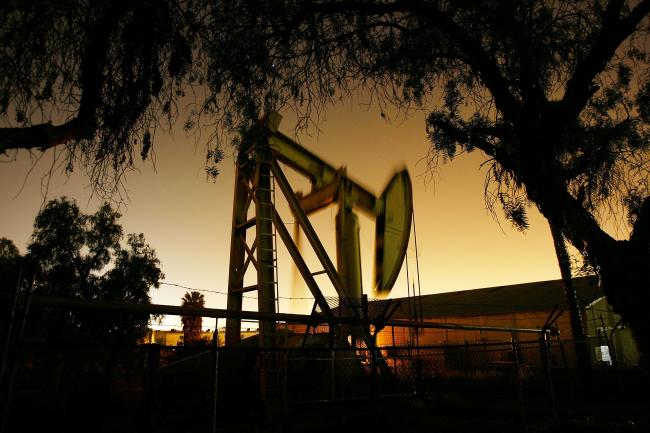(Bloomberg) -- Oil fell as investors weighed Saudi Arabia’s quicker-than-expected recovery from the biggest attacks ever on its energy industry against prospects of a thaw in the U.S.-China trade war.
Futures dipped 0.7% in New York after sliding 3.7% over the previous two sessions. Saudi Arabia has boosted production capacity to more than 11 million barrels a day, beating its own target by about a week, and raised output to above 8 million, according to people with knowledge of the matter. U.S. President Donald Trump said Wednesday that a deal with Beijing could happen “sooner than you think,” offering a glimmer of hope for global oil demand.
The attacks on two oil installations in Saudi Arabia knocked out almost 5% of global supply and are driving crude to its biggest monthly advance since June. However, prices are almost back to where they were before the Sept. 14 strikes as the kingdom is restoring production and demand continues to be a concern. The prolonged U.S.-China trade war has already almost halved oil consumption growth, Citigroup Inc (NYSE:C). said earlier this month.
“Less than two weeks after the attacks on Saudi Arabia, the oil market has returned to business as usual,” said Norbert Ruecker, head of economics at Julius Baer. “Saudi has seemingly restored supplies faster than anticipated, and the oil market is shifting its focus back to the soft economy and stagnant oil demand.”
West Texas Intermediate for November delivery lost 38 cents to $56.11 a barrel on the New York Mercantile Exchange as of 8:46 a.m. local time. Brent for the same month fell 27 cents to $62.12 on the ICE (NYSE:ICE) Futures Europe Exchange, after closing 71 cents lower on Wednesday. It traded at a $5.96 premium to WTI.
Trump said there is a “good chance” a trade deal can be reached, adding that Beijing is starting to make big purchases of items such as beef and pork. The tone toward China was vastly different earlier this week, with Trump accusing the Asian nation of currency manipulation, theft of intellectual property and product dumping during his speech at the UN General Assembly.
